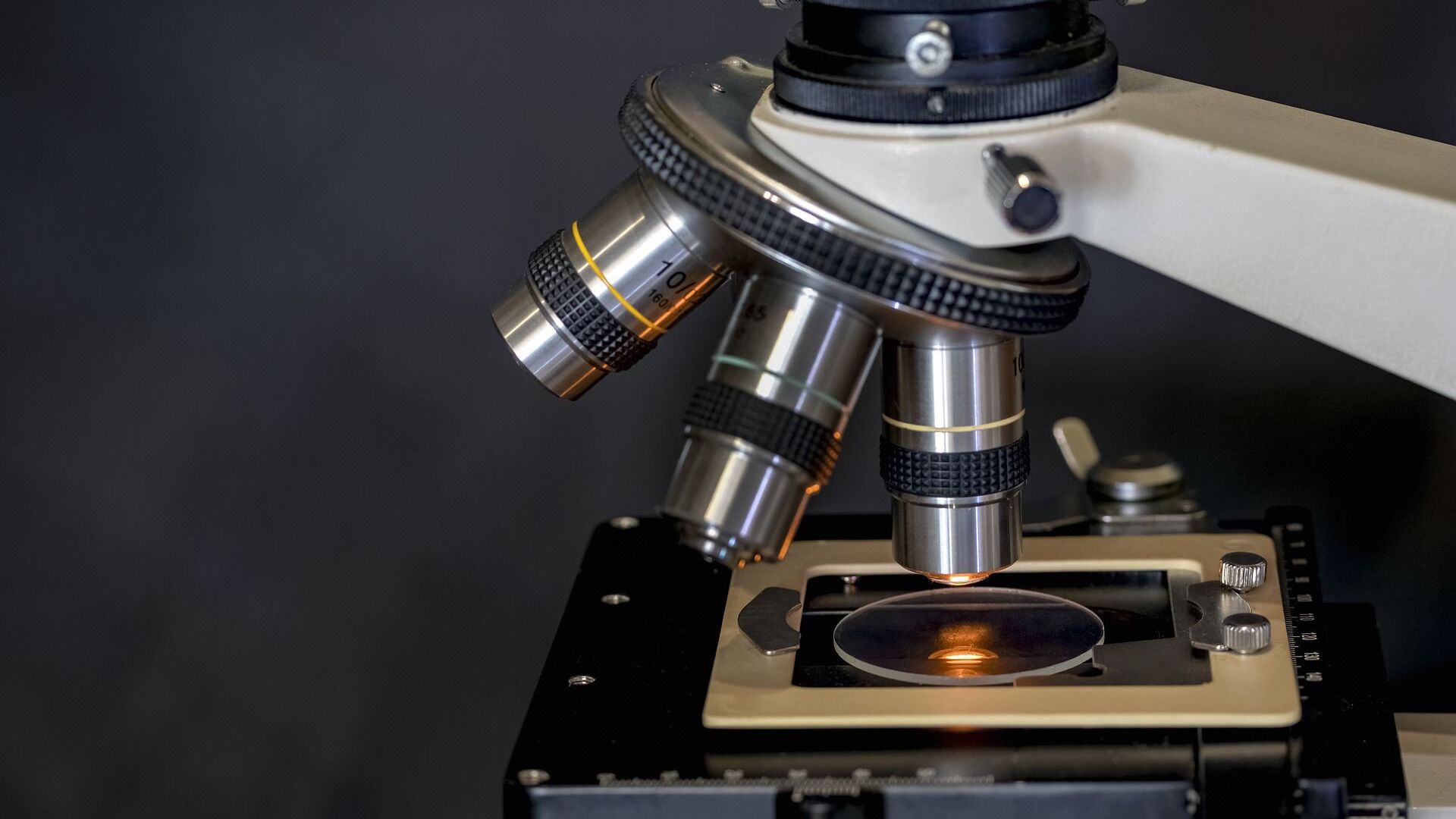https://en.sputniknews.africa/20230420/ugandan-scientist-makes-low-cost-ai-supported-cancer-detection-microscope-1058727309.html
Ugandan Scientist Makes Low-Cost AI-Supported Cancer-Detection Microscope
Ugandan Scientist Makes Low-Cost AI-Supported Cancer-Detection Microscope
Sputnik Africa
Once the new technology passes all three phases of clinical trials and is approved by the National Drug Administration, it could become more affordable for hospitals across Uganda to begin screening and diagnosing cancer.
2023-04-20T15:54+0200
2023-04-20T15:54+0200
2023-04-20T15:54+0200
sub-saharan africa
uganda
east africa
science
disease
world health organization (who)
https://cdn1.img.sputniknews.africa/img/07e7/04/14/1058727261_0:100:1921:1180_1920x0_80_0_0_08ce27c0ca52a18ef9cf17f7b0857722.jpg
A 34-year-old Ugandan lecturer in the Department of Biomedical Sciences and Engineering of Mbarara University of Science and Technology Dr William Wasswa, has developed an automated digital microscope for the detection of cervical cancer, local media report.Dr Wasswa told the media outlet that the inexpensive machine includes a number of hardware and software innovations that make cancer diagnosis and patient record management quicker and more efficient.According to the scientist, it took five years to develop this invention, which was part of his PhD project. Since the microscope has an element of artificial intelligence technology, the accuracy of the development improves with each new test.In his article in scientific journal 'BioMedical Engineering Online', the scientist wrote that the evaluation of the classifier was carried out on three different datasets with an overall classification accuracy, sensitivity, and specificity of each set in tests exceeding 97 percent.Furthermore, the scientist shared the practical benefits of the developed microscope.The doctor hopes his invention will allow Ugandan hospitals to fight cancer more effectively.According to the HPV and Cancer Information Centre, every year in Uganda 6,959 women are diagnosed with cervical cancer and 4,607 die from the disease.
uganda
east africa
Sputnik Africa
feedback@sputniknews.com
+74956456601
MIA „Rossiya Segodnya“
2023
Maxim Grishenkin
https://cdn1.img.sputniknews.africa/img/07e7/0a/17/1063018107_0:0:1104:1103_100x100_80_0_0_03090c85a11f5d2e8a19cf1d989443c9.jpg
Maxim Grishenkin
https://cdn1.img.sputniknews.africa/img/07e7/0a/17/1063018107_0:0:1104:1103_100x100_80_0_0_03090c85a11f5d2e8a19cf1d989443c9.jpg
News
en_EN
Sputnik Africa
feedback@sputniknews.com
+74956456601
MIA „Rossiya Segodnya“
Sputnik Africa
feedback@sputniknews.com
+74956456601
MIA „Rossiya Segodnya“
Maxim Grishenkin
https://cdn1.img.sputniknews.africa/img/07e7/0a/17/1063018107_0:0:1104:1103_100x100_80_0_0_03090c85a11f5d2e8a19cf1d989443c9.jpg
uganda invention, cervical cancer, africa medicine, new technologies
uganda invention, cervical cancer, africa medicine, new technologies
Ugandan Scientist Makes Low-Cost AI-Supported Cancer-Detection Microscope
Once the new technology passes all three phases of clinical trials and is approved by the Ugandan National Drug Administration, it could become more affordable for hospitals across the country to begin screening and diagnosing cancer.
A 34-year-old Ugandan lecturer in the Department of Biomedical Sciences and Engineering of Mbarara University of Science and Technology Dr William Wasswa, has developed an automated digital microscope for the detection of cervical cancer, local media report.
Dr Wasswa told the media outlet that the inexpensive machine includes a number of hardware and software innovations that make cancer diagnosis and patient record management quicker and more efficient.
"This new technology can take five minutes for you to get the test results. You load the pap smear [tissue sample from the body] for the cervical cancer test under the microscope and the computer does the analysis and gives you the results," Dr Wasswa said.
According to the scientist, it took five years to develop this invention, which was part of his PhD project.
Since the microscope has an element of artificial intelligence technology, the accuracy of the development improves with each new test.
"I have six of [these microscopes] at the moment. But I am still improving the accuracy. The sensitivity is at 94 percent and specificity is at 96 percent," Dr Wasswa said in an interview.
In his article in scientific journal 'BioMedical Engineering Online', the scientist wrote that the evaluation of the classifier was carried out on three different datasets with an overall classification accuracy, sensitivity, and specificity of each set in tests exceeding 97 percent.
Furthermore, the scientist shared the practical benefits of the developed microscope.
"The major contribution of this tool in a cervical-cancer screening workflow is that it reduces the time required by the cytotechnician to screen a plethora of pap-smears by eliminating the obviously normal ones, hence more time can be put on the suspicious slides," Dr Wasswa wrote. "The proposed system has the capability of analyzing a full pap-smear slide within 3 minutes as opposed to the 5 to 10 minutes per slide in manual analysis."
The doctor hopes his invention will allow Ugandan hospitals to fight cancer more effectively.
"My machine costs between $300 and $500. The current [imported] microscope they use is about $21,000. The new machine will be five to seven times cheaper than the current microscopes," he said.
According to
the HPV and Cancer Information Centre, every year in Uganda 6,959 women are diagnosed with cervical cancer and 4,607 die from the disease.


